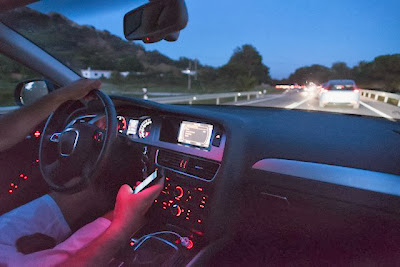According to the National Highway Traffic Safety Administration (NHTSA), distracted driving is any activity that diverts a person’s attention away from driving. Sending or reading text messages, fiddling with a cell phone or smartphone, eating and drinking causing the driver to let go of the steering wheel, excessive talking to passengers, grooming or putting on make-up, reading including maps, fiddling with a navigation system, watching a video, even the excessive adjusting of a radio, CD player or MP3 player all count as distractions when driving.
Facts about distracted driving
Most people don’t recognize the ill effects of distracted driving. In fact, a lot of people believe that distractions can really affect one’s skills, preventing them from being successful in avoiding accidents as hazards suddenly pop out of the road. In fact, the number of those involved in accidents got lower at 387,000 in 2011 compared to the 416,000 involved in accidents back in 2010. However, the number of people who died increased to 3,311 in 2011, 64 deaths higher than the recorded 3,267 deaths because of crashes brought about by distractions to the driver, 64 cases higher than the number of casualties for the same period in 2010. These staggering numbers prove the point that distracted driving can really get one person into serious trouble.
The aftermath of an accident caused by distracted driving
Beyond the numbers mentioned in the statistics, the damage caused by such accidents can be devastating. For one, crashes bring about damage to property. Accidents can cause damages to the car of both parties, as well as other structures on and off the road. These accidents can also cause bodily injuries which hurt or leave a victim temporarily and permanently disabled.
Running after irresponsible drivers
If the negligence of a driver has caused an accident that resulted to damage to one’s property or worse, caused one to get injured or dead, the driver can be held liable for personal injury. By filing a personal injury claim through the help of a car accident attorney in Los Angeles, one victim can avenge what has happened to him or her. This will help them get compensation to have the damaged properties fixed. More importantly though, such repayments can be used by one to get the treatment, medication, and rehabilitation that they need, while also being paid of the earning they should have received while they are unable to work because of these disabilities. This will help these poor victims rebuild their good life that they’ve almost lost when this accident happened.
So when you’re out on the road, keep those distractions away and focus on what you should really be doing; driving—nothing more, nothing less.














